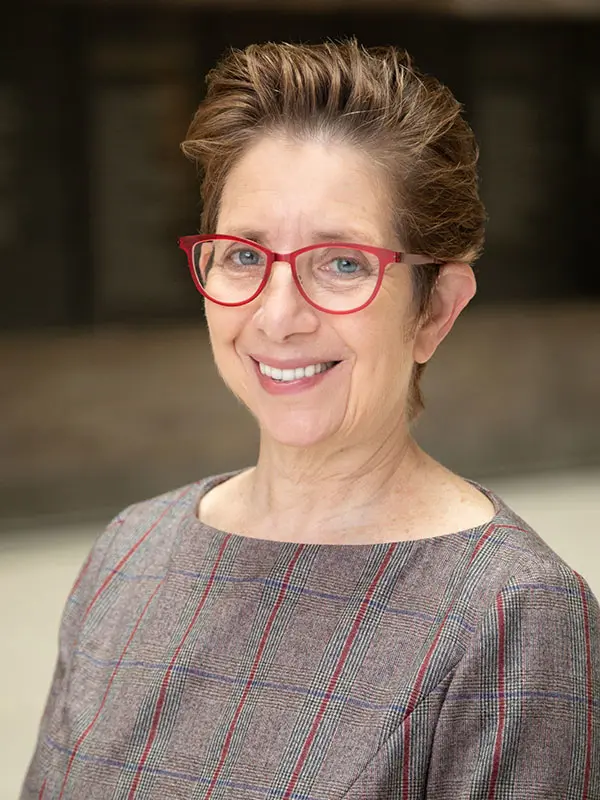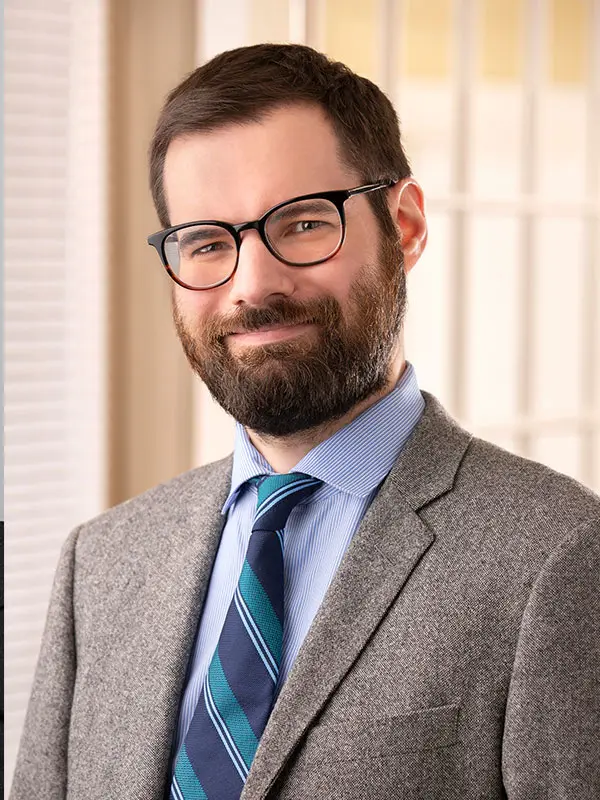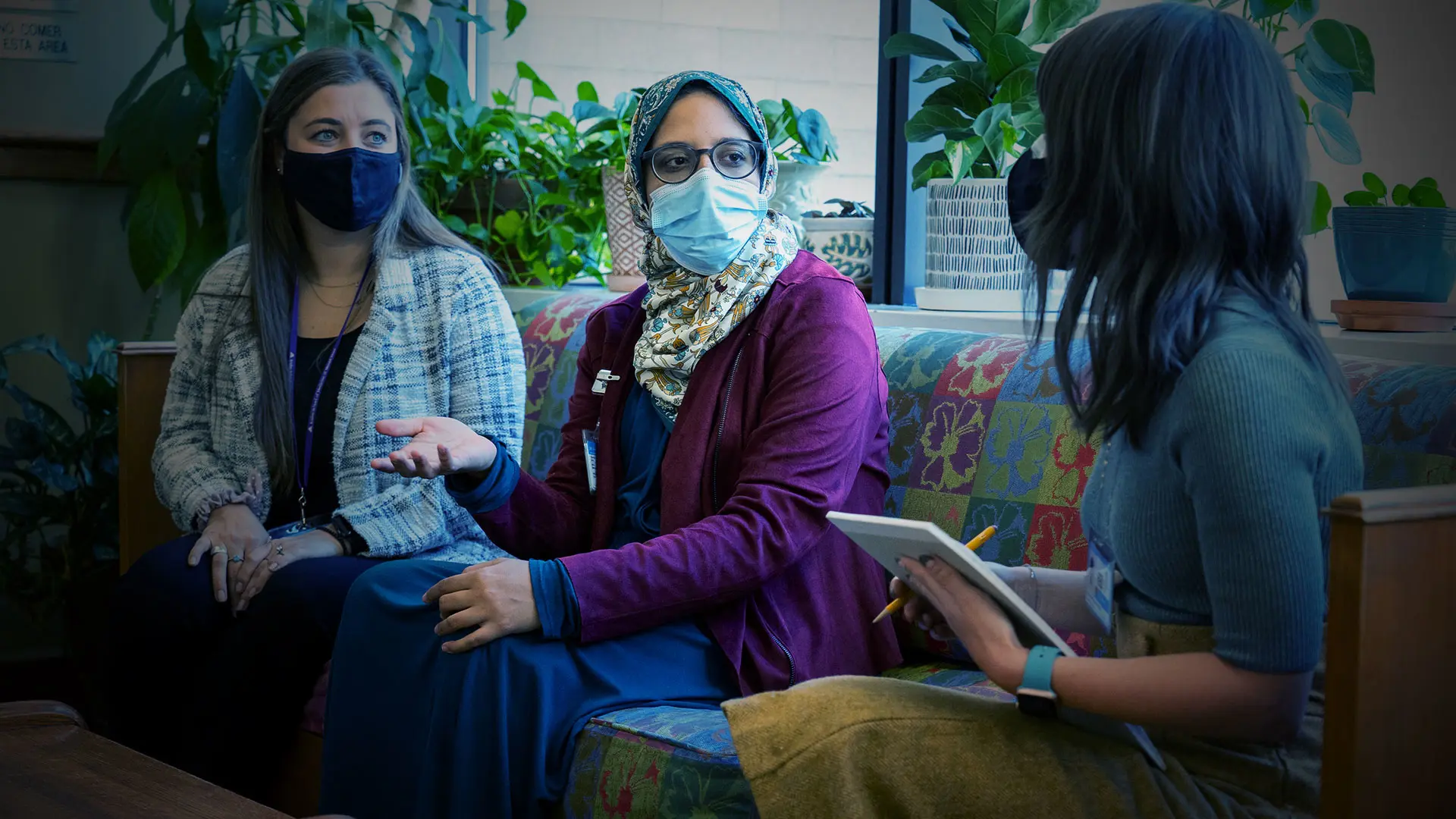Early in the pandemic, the Mount Sinai Health System created the Center for Stress,
Resilience and Personal Growth to help frontline health workers cope with the psychosocial trauma they were experiencing. Today, the program is more popular than ever, as employees enroll in workshops that help them build strength and resilience into their professional and personal lives. The Center has gained national visibility and
stature as well, and serves as a model for other institutions.
“We’ve evolved from being COVID-oriented to addressing issues that enable people to do their jobs well, find meaning in their work, and feel part of a team,” says Deborah Marin, MD, Director of the Center for Stress, Resilience and Personal Growth, and George and Marion Blumenthal Professor of Psychiatry at the Icahn School of Medicine at
Mount Sinai. Under Dr. Marin’s leadership, the Center has grown in size to include 15 psychiatrists, psychologists, and social workers. “There’s always been a need for a program like this that can help people navigate the daily stressors of their jobs by building resilience. Instead of making it an add-on, though, we’re integrating the program into the training curricula for residents, fellows, nurses, physicians, and other health care workers at Mount Sinai.”
The success of the effort is evident in the more than 180 virtual and in-person workshops conducted to date. Each workshop consists of five meetings focused on different resilience topics, such as realistic optimism, facing fears, the importance of social support and resilience role models, and meaning and purpose. No two workshops are the same.
The center is building partnerships with outside institutions
“One of the reasons for our success is that before holding a workshop we meet with key stakeholders, such as nurse managers, residency program directors, and wellness champions, to learn about their concerns and challenges,” says Jonathan DePierro, PhD, the Center’s Clinical and Research Director and Assistant Professor of Psychiatry. Dr. DePierro leads many of the sessions with Craig Katz, MD, Clinical Professor of Psychiatry, Medical Education, and System Design. He says, “We want the workshops to be relevant to them, instead of a boilerplate offering.”
For the 20 residency and fellowship programs that have joined forces with the Center so far, that tailoring includes offering employees a greater understanding of the biology of resilience—including its underlying physiology. Nursing units whose members face increasing rates of burnout and exhaustion are also making room in their hectic schedules for the group workshops. In July, nurse managers and educators at Mount Sinai West appeared on CBS This Morning to discuss their positive experience with the program.
More than 1,000 Mount Sinai employees have also downloaded an app known as the Wellness Hub to access the benefits of the Center for Stress, Resilience and Personal Growth on their smartphones. Developed in partnership with the Hasso Plattner Institute for Digital Health at Mount Sinai, the Wellness Hub allows users to assess their well-being through confidential tools, including a depression and anxiety screener, and to engage in self-guided activities to improve well-being.
“Building resilience to help employees handle challenges in their lives is clearly a growing field, and we’re helping to pave the way with the clinical, research, and educational work we are doing now.”
- Jonathan DePierro, PhD
In October 2020, the Center started a confidential faculty practice, supplementing MSHS’s ability to provide timely evidence-based behavioral health care to all Mount Sinai faculty, staff, and trainees. More than 350 employees have benefited from this service across more than 2,500 visits, largely over telehealth platforms to lower barriers to
engagement.
The Center has also expanded its reach outside Mount Sinai. One effort involves training faith-based leaders in New York City’s Bronx and Harlem neighborhoods to develop and deliver resilience workshops to members of their congregations, many of whom were
deeply affected by COVID-19. Dr. Marin says this program builds upon the relationships she began cultivating four years ago as Director of the Center for Spirituality and Health at Mount Sinai. Forty workshops have been held so far, with initial funding from a private foundation.
The Center is also building partnerships with outside institutions facing similar challenges. According to Dr. DePierro, “Building resilience to help employees handle challenges in their lives is clearly a growing field, and we’re helping to pave the way with the clinical, research, and educational work we are doing now.”
Featured

Deborah Marin, MD
Director, Center for Stress, Resilience and Personal Growth, and George and Marion Blumenthal Professor of Psychiatry

Jonathan DePierro, PhD
Clinical and Research Director, Center for Stress, Resilience and Personal Growth, and Assistant Professor of Psychiatry
